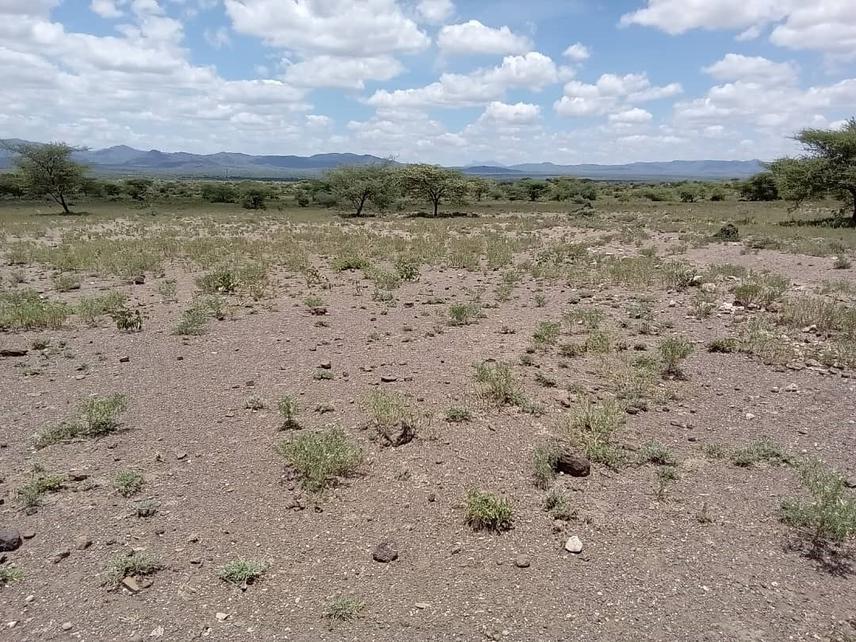Gladys Joseph Lendii
Rangelands in Tanzania northern circuits provides corridors for movements between protected areas to graze in neighbouring community lands, where they often share pastures with Maasai pastoralists. The effect of climate change which results in erratic climate (i.e., drought) and uncontrolled grazing have increased pressure in Tanzania rangelands in the northern circuit and thus contribute to loss of vegetation cover and alteration of plant species composition.

Impact of overgrazing on species composition in rangeland of Longido District. ©Gladys Lendii (2024).
In response to strong grazing pressure, pastoralists, have used various approaches to improve their livelihood. Passive approaches, such as exclosures where Maasai society use Alalili silvo-pastoral conservation systems as cultural means to protect grazing land that provide pasture to sick, weak, old and young livestock in the time of drought, have limited success. Moving livestock is a central part of Maasai pastoralism, which has historically followed a seasonal pattern. However, movement is becoming more and more difficult due to pasture shortage in their communal lands thus forcing them to graze their livestock in the protected area where they encounter conflicts with protected area management.
This study aims to explore the use of seed balls technique in restoring degrading rangeland ecosystems of Northern Tanzania, using Enduimet Wildlife Management Area as a case study. The study will use both qualitative and quantitative analyses and include a socio-ecological aspect to understand the potential of restoration through seedballs in Tanzanian rangeland. The study will investigate the pastoralists’ preferred grass species, awareness and willingness to adopt seedball techniques using semi-structured questionnaires, key Informant interviews and Participatory Mapping. The soil's physical-chemical properties and soil seed bank will be determined across areas that are used differently by pastoralists over the year. Screen house and field experiments will be conducted to determine the performance of seedballs across different grazing lands in northern rangelands (Longido, Monduli and Simanjiro Districts). Besides improving the rangeland this study will provide training to pastoralists on the values of rangelands, seedball restoration technique, its preparations and their distribution thus providing sustainability of the technique.